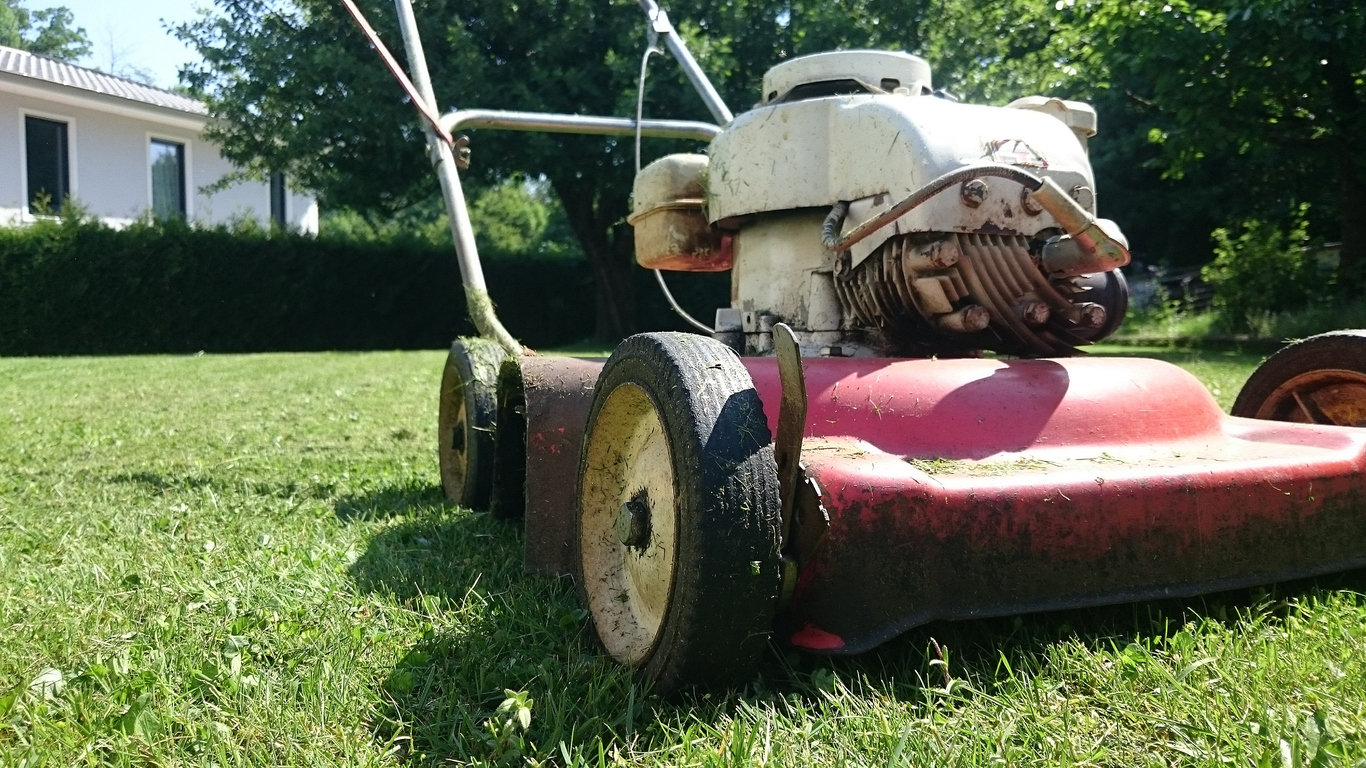
By now, we've all heard of the term "helicopter parent." It's what most of society uses to describe parents who are overprotective to the extreme, who hover over their kids with propeller blades whirring, hoping to protect them from every danger both real and imagined. But there's another noisy machine people are using to describe a detrimental parenting approach, and over the weekend it went viral. The Facebook page We Are Teachers shared a controversial essay that claims "lawn mower parents" are screwing up their kids for life.
The piece, written by an anonymous teacher, calls out parents who "mow down" every obstacle so their kids never have to face adversity.
In it, the teacher recounts the story of a parent who showed up in the middle of her planning period to drop off something very important for his child. What was it? A water bottle that his *high school-*aged daughter left at home.
“'Hi, sorry,' the parent said sheepishly. He was in a suit, clearly headed to work (or something worklike). 'Remy kept texting me that she needed it. I texted back, Don’t they have water fountains at your school?, but I guess she just had to have it out of the bottle.' He laughed, as if to say, Teenagers, am I right?
I took a deep breath through my nose. 'Oh, I have one of those — I love mine, too,' I said. But I’m pretty sure my eyes were saying, WHAT ON THIS ACTUAL EARTH?"
Lawn mower parents, the teacher wrote, come from a good place but ultimately they aren't doing kids any favors. "In raising children who have experienced minimal struggle, we are not creating a happier generation of kids. We are creating a generation that has no what idea what to do when they actually encounter struggle," the teacher wrote. "A generation who panics or shuts down at the mere idea of failure. A generation for whom failure is far too painful, leaving them with coping mechanisms like addiction, blame, and internalization."
The article got people fired up, with many coming to the We Are Teachers Facebook page to applaud the writer.




Others noted that these kids may really struggle once they get out into the real world.

The anonymous teacher who wrote the original essay noted this in her writing as well, pointing out that a coddled kid who bombs a college exam may not see it as motivation to study harder. Instead, the student might see it as an excuse to blame the teacher, assume he failed because he is stupid or even make plans to not finish college.
Karen Fancher, a college professor who wrote about lawn mower parenting for the Pittsburgh City Moms Blog, wrote that she routinely has parents visit her during office hours — at a university — to discuss problems their grown children are having.
But some took issue with the idea of criticizing parents for their level of involvement in their kids' lives.

"That’s up to the parents and families to deliver failure coping techniques and advice through creating struggles in the home routine," one person wrote. "This is not up to schools to act [like] God and have children go through a so-called resilience created by school. Ridiculous for teachers to even consider creating failure in a classroom setting. Failures will happen and children or adults will deal with it as they are able."
And at least one person poked fun at the idea that we need a name for every kind of imperfect parent.

Parenting is not an easy job, and no one is doing it perfectly. Although lawn mowers, helicopters, and whatever other kind of machine we can conjure up in our imaginations all paint funny pictures of the flaws we have as parents, the reality is that it's not always so simple. Parents may "coddle" their kids because the child suffers from mental health issues or a learning disability. Parents may be overprotective because they themselves were abandoned or abused as kids. Or, in some cases, parents just might not know how to handle a situation so they step in and they learn that they didn't need to, and they do it better next time.
There's no one-size-fits-all approach to being a mom or a dad, but this teacher's post is a good reminder to reconsider the next time we feel the urge to rush in and fix something for our kids. Do they really need us to do that? Is the problem one that they can't solve themselves? Will they grow from us helping them solve it?
If the answer to those questions is no, it might be the perfect time to stop mowing and let them learn how to take care of and advocate for themselves.




